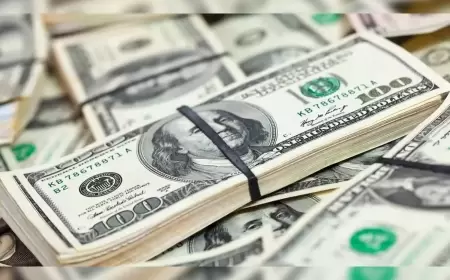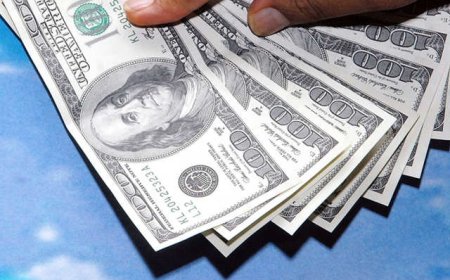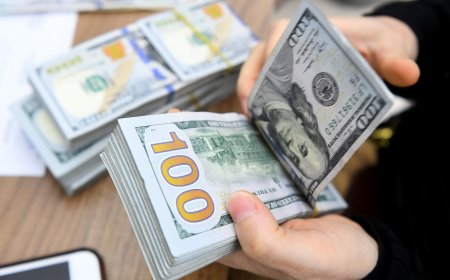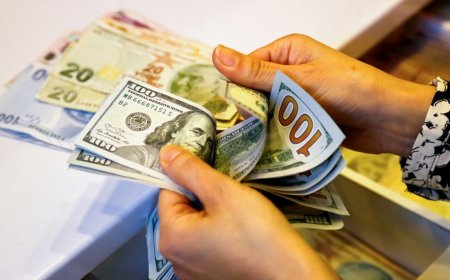Forex Trading: A Simple Guide to Understanding the Market and the Role of the US Dollar
Learn how Forex trading works and why the US Dollar plays a central role in currency markets. Get insights into currency pairs, trading strategies, and market dynamics.
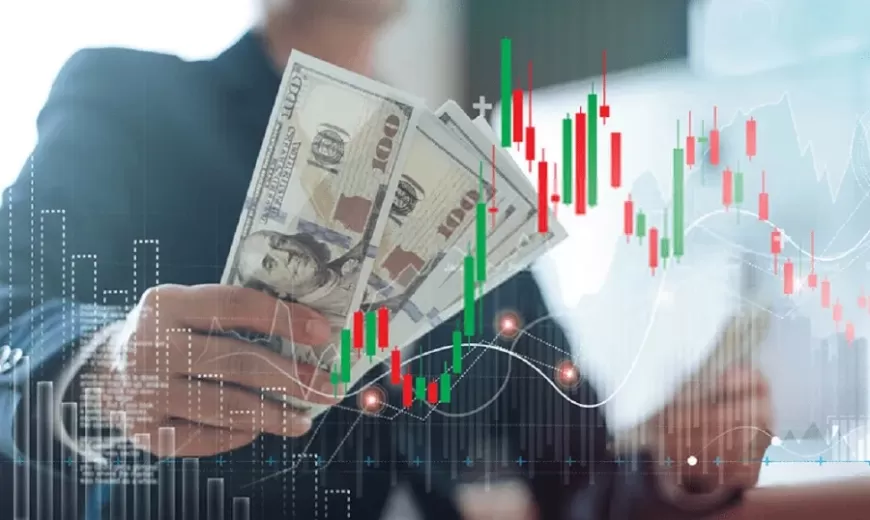
Forex, the world’s largest financial market, can seem complex at first, but understanding the basics is essential for anyone interested in currency trading or global finance.
What is Forex?
Forex, short for foreign exchange, is a global market where people and institutions buy, sell, and exchange currencies. It’s the largest financial market in the world, with a daily trading volume of over $7 trillion. Unlike the stock market, which is centralized, Forex trading happens directly between two parties, meaning it’s decentralized and operates 24 hours a day, five days a week.
In simple terms, Forex trading involves buying one currency while simultaneously selling another. For instance, when you trade the Euro against the US Dollar (EUR/USD), you are betting on the price of the Euro in relation to the Dollar.
Why Forex is Important
Forex plays a crucial role in the global economy. It enables businesses to conduct international transactions, helps travelers exchange money, and even allows investors to profit from currency fluctuations. Governments and central banks also engage in Forex to stabilize their economies by controlling currency values.
For example, when a company imports goods from another country, it needs to convert its local currency to the foreign currency. This is where Forex comes into play. Similarly, international tourism requires exchanging currencies when traveling abroad.
The Role of the US Dollar in Forex
The US Dollar (USD) is the most traded currency in the Forex market, accounting for more than 80% of global transactions. Several factors contribute to the USD’s dominance:
-
Global Reserve Currency: Central banks worldwide hold US Dollars as a reserve to support their currencies and international trade.
-
Stability: The size and stability of the US economy make the Dollar a safe choice for investors, especially in uncertain times.
-
Petroleum Transactions: Most oil transactions globally are priced in USD, which keeps demand for the Dollar high.
-
Global Trade: The US Dollar is involved in most global trade transactions, and many commodities like gold, oil, and other raw materials are priced in USD, further cementing its importance.
The US Dollar influences almost every other currency in the world. Some of the most traded currency pairs are those involving the Dollar, like EUR/USD (Euro/US Dollar), GBP/USD (British Pound/US Dollar), and USD/JPY (US Dollar/Japanese Yen).
How Forex Trading Works
When you trade Forex, you always deal with a currency pair. Each pair consists of a base currency (the first currency) and a quote currency (the second currency). For example, in the pair EUR/USD:
-
EUR is the base currency.
-
USD is the quote currency.
The price of the pair shows how much the quote currency (USD) is needed to buy one unit of the base currency (EUR).
There are two main prices to know when trading:
-
Bid Price: The price at which you can sell the base currency.
-
Ask Price: The price at which you can buy the base currency.
The difference between the bid and ask price is called the spread, and it represents the broker’s fee for facilitating the trade.
Understanding Currency Pairs
Forex trading revolves around currency pairs. There are three types of currency pairs:
-
Major Pairs: These pairs involve the most widely traded currencies, such as EUR/USD, USD/JPY, and GBP/USD. These pairs typically have the tightest spreads and high liquidity.
-
Minor Pairs: These pairs include currencies that aren’t traded as often, like EUR/GBP, EUR/JPY, and GBP/JPY. They tend to have wider spreads and can be more volatile.
-
Exotic Pairs: These involve a major currency and a currency from an emerging economy, such as USD/TRY (US Dollar/Turkish Lira) or EUR/ZAR (Euro/South African Rand). Exotic pairs are generally less liquid and more volatile.
How Do You Make Money in Forex?
Traders make money by predicting the direction of currency prices. For example, if you think the Euro will strengthen against the US Dollar, you would buy the EUR/USD pair. If the Euro rises in value, you can sell it for a profit.
Traders also use leverage, which means borrowing money to increase the size of their trades. For instance, if a broker offers 100:1 leverage, it means you can control $100,000 worth of currency with just $1,000 of your own capital. While leverage can amplify profits, it also increases the risk of losses.
Key Factors That Affect Currency Prices
Several factors influence the value of currencies in the Forex market:
-
Interest Rates: When a country raises its interest rates, it often strengthens its currency because higher rates attract investors seeking better returns. For instance, if the Federal Reserve raises US interest rates, the USD tends to appreciate as investors flock to take advantage of higher returns.
-
Economic Indicators: Data like GDP growth, unemployment rates, and inflation influence currency values. Strong economic performance tends to boost a country’s currency. For example, if a country’s unemployment rate decreases, it signals economic health, which can lead to currency appreciation.
-
Global Events: Geopolitical events, such as elections, wars, or natural disasters, can cause currency values to swing. For instance, the uncertainty caused by Brexit led to significant fluctuations in the value of the British Pound.
-
Market Sentiment: If traders believe a currency will rise, they buy it, which can push its value up. Conversely, if they expect a fall, they may sell it, which can drive its value down. News events, rumors, or reports can significantly impact investor sentiment.
Why is Forex Trading Popular?
-
High Liquidity: Forex is the most liquid market in the world, meaning you can buy and sell currency pairs quickly and easily. Liquidity ensures that trades can be executed without significant price fluctuations.
-
24-Hour Market: The Forex market never sleeps, making it accessible to traders worldwide at any time. It opens on Sunday evening and closes on Friday evening, allowing flexibility for traders across different time zones.
-
Low Transaction Costs: Forex trading typically involves low fees, especially for major currency pairs like EUR/USD. Many brokers charge a small spread and offer commission-free trading.
-
Leverage: Forex brokers offer high leverage, allowing traders to control larger positions with a small initial investment. This makes Forex trading appealing to both beginners and experienced traders alike.
How to Get Started in Forex Trading
If you’re new to Forex, here are a few steps to help you get started:
-
Learn the Basics: Understand key Forex terms, currency pairs, and how the market works. Take online courses, watch tutorials, or read beginner guides.
-
Choose a Trusted Broker: Select a Forex broker that is regulated and offers competitive spreads, reliable trading platforms, and customer support. Look for brokers that are licensed by reputable authorities like the UK’s FCA or the US’s NFA.
-
Use a Demo Account: Most brokers offer demo accounts where you can practice trading without risking real money. This is a great way to get familiar with the platform and try out different strategies.
-
Start Small: Begin with a small investment and gradually increase as you become more comfortable with the market. Remember, Forex trading carries a high level of risk, so never invest money you can’t afford to lose.
-
Develop a Trading Plan: Have a clear strategy in place, including your risk tolerance, profit goals, and trade entry/exit rules. A disciplined approach can help you make more informed decisions and avoid emotional trading.
Risks of Forex Trading
While Forex offers great potential for profit, it’s important to understand the risks involved:
-
Market Volatility: Currency prices can be unpredictable, especially during global crises or economic uncertainty. Events like natural disasters, elections, or financial crises can lead to sharp price movements.
-
Leverage Risks: While leverage can amplify profits, it also increases the risk of significant losses. Always be mindful of your leverage ratio, and avoid overexposing your capital.
-
Complexity: Forex is influenced by many factors, and making informed decisions requires time, research, and experience. It's important to stay updated with global news and market trends.
The Future of Forex Trading
With advancements in technology, Forex trading has become more accessible than ever. Online platforms and mobile apps allow anyone with an internet connection to trade. Automated trading systems and AI-driven strategies are also growing in popularity, helping traders make decisions based on data analysis and market trends.
The US Dollar will likely continue to dominate the market due to its central role in global trade, but emerging market currencies may also gain more attention as economies around the world grow and evolve. Blockchain technology is also making its way into Forex, providing more transparency and reducing transaction costs.
Also Read: Dollar Could Bounce Back if Fed Opts for Smaller Rate Cut, Says Morgan Stanley

















































